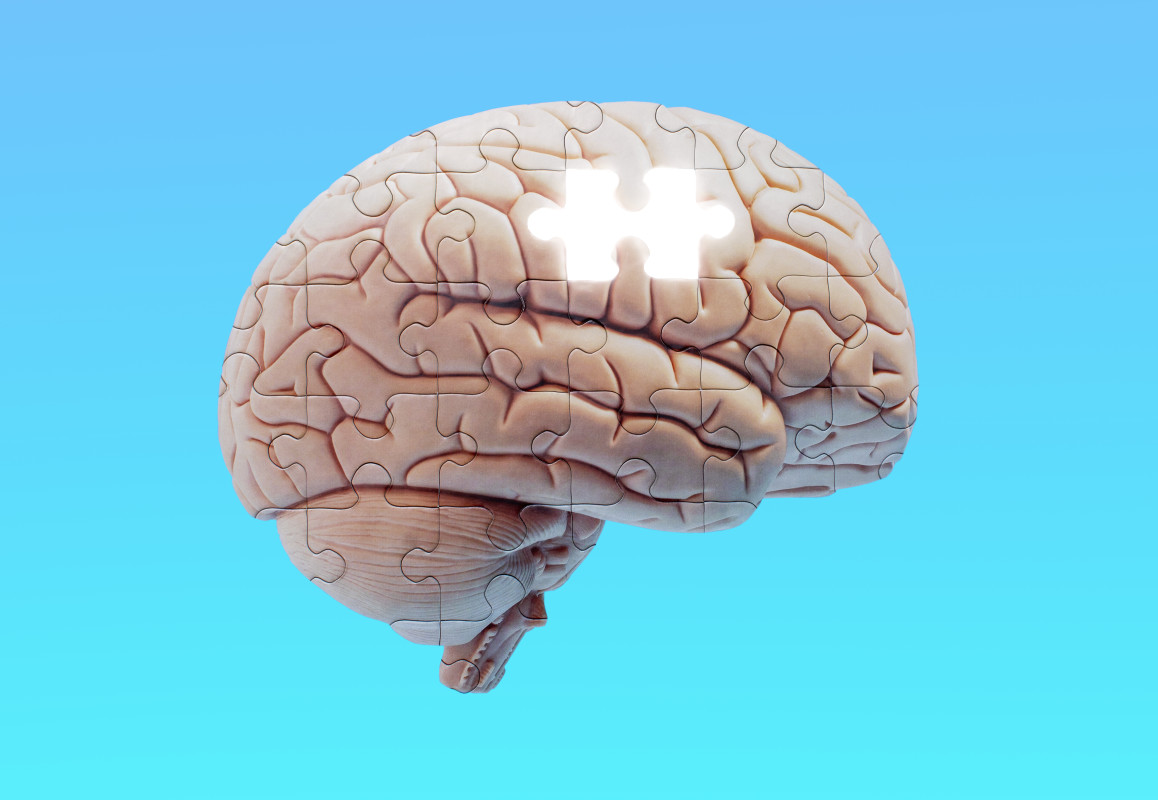
When picturing signs of dementia to look for, the first ones that come to mind may be memory loss, struggling to think of the right word and having difficulty problem-solving. You may have also heard about how dementia can cause a loss of smell and even falling.
Unfortunately, those aren’t the only signs of dementia, and there’s at least one that you literally may not even be able to see yourself.
Related: The Unexpected Early Dementia Sign You Might Miss, According to Neurologists
The Surprising Sign of Dementia You Might Miss, According to Neurologists
According to research and a neurologist, there’s another sign that’s more surprising, and hard to notice: involuntary eye movements.
Advertisement
Advertisement
Dementia affects the brain, which can affect bodily functions and lead to a loss of motor control. One of the earliest signs is involuntary eye movements, known as saccades, according to researchers working to detect the disease with a special earpiece.
“Eye movements are an important window into how the brain is functioning,” says Dr. Meredith Bock, MD, a board-certified neurologist and chief medical officer at Remo Health. “For people with Alzheimer’s, their eye motor control functions may be impacted due to a decline in the brain areas that govern eye movements.”
She also notes that saccades are one of the earliest signs of neurodegenerative diseases. “Neurodegenerative illness can cause increased delays and imprecision in saccades,” she says. “They can also cause ‘saccadic intrusions’ into the smooth pursuit, where the normally smooth movements of the eyes following an object in motion become more ratchet-y.”
These patients may also have challenges with visual searching and reading, she adds, or move their whole head instead of just their eyes to look at something.
Related: This Seemingly Harmless Condition May Be Linked With Dementia, According to Study
What Those Involuntary Eye Movements Entail
Given these movements are small and rapid—and given eye movement happens frequently on purpose—this sign isn’t super easy to spot.
Advertisement
Advertisement
“In most cases, only a trained professional, like a neurologist, would notice,” Dr. Bock says.
That’s not always the case, however. The severity can vary greatly, she continues, and other factors are at play. “Some people may have noticeable signs because they are slow to look at something or lose track of a moving object,” she adds.
🩺 SIGN UP for tips to stay healthy & fit with the top moves, clean eats, health trends & more delivered right to your inbox twice a week 💊
Other Conditions That Can Cause Involuntary Eye Movements
Involuntary eye movements aren’t a clear sign someone has dementia, and many conditions can cause this symptom.
According to Dr. Bock, involuntary eye movements can indicate problems in the central nervous system (such as the brain and spinal cord) or the peripheral nervous system (such as nerves, muscles, and the junction between the nerve and muscles).
Advertisement
Advertisement
More in Health
More specific causes she mentions include progressive supranuclear palsy, nystagmus, strokes, tumors, antiepileptic medications, myasthenia gravis and more.
Related: Eating This Daily May Reduce Your Dementia Risk, According to Doctors
What to Do If You Notice Involuntary Eye Movements
If you suspect something is wrong with your eyes or a loved one’s, Dr. Bock encourages consulting with a physician.
“If this happens suddenly, it could be an emergency, like a stroke,” she adds. “While it might be a symptom related to dementia, there are other underlying causes that require medical attention, so it’s best to rule out other potential causes for this condition.”
Up Next:
Related: The Simple, At-Home Test for Early Dementia Detection
Sources
EMEA Tribune is not involved in this news article, it is taken from our partners and or from the News Agencies. Copyright and Credit go to the News Agencies, email news@emeatribune.com Follow our WhatsApp verified Channel




